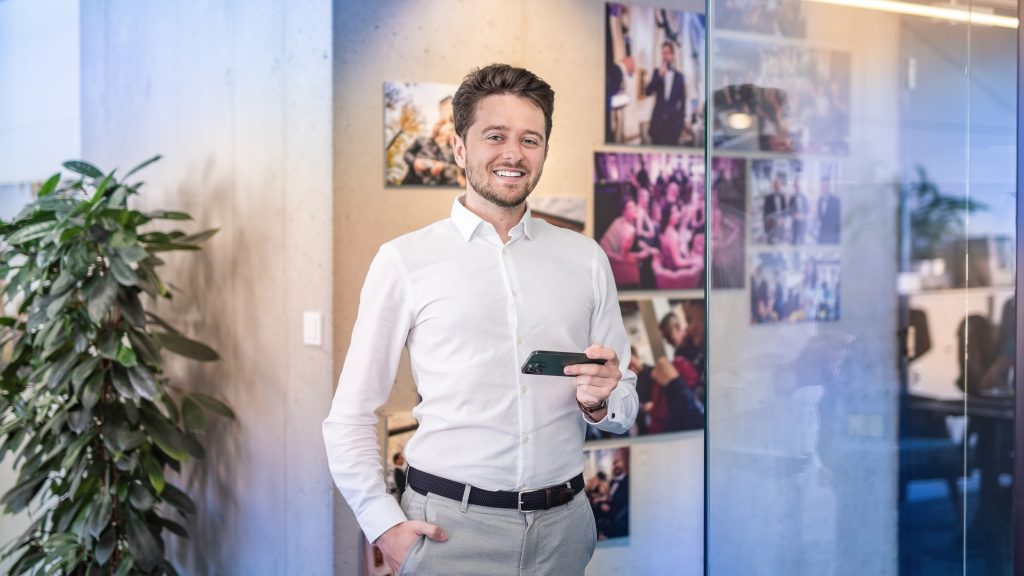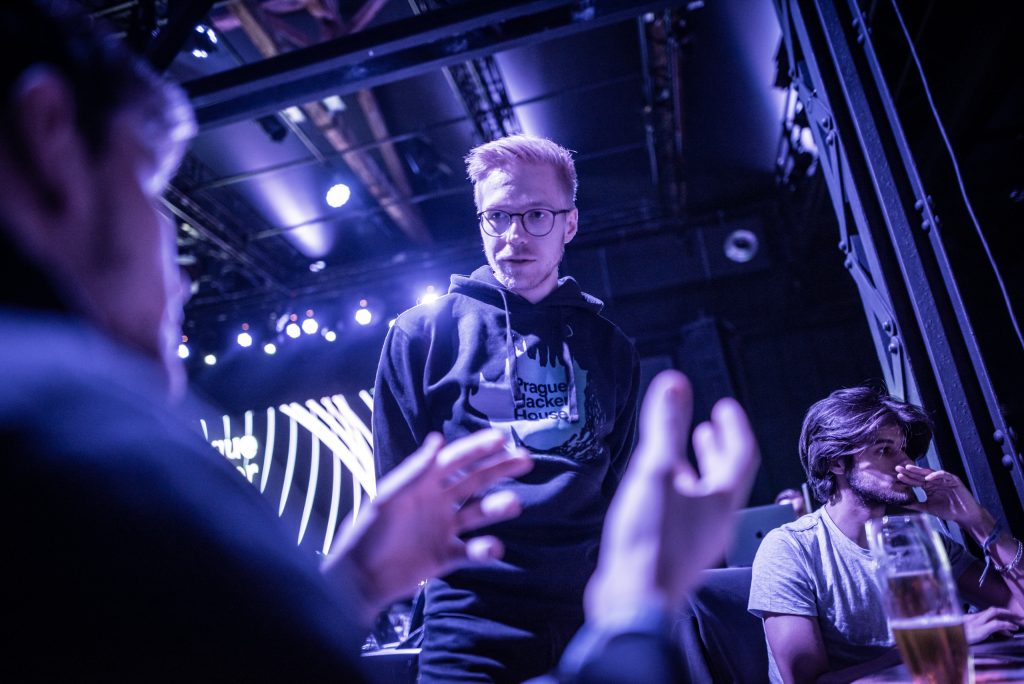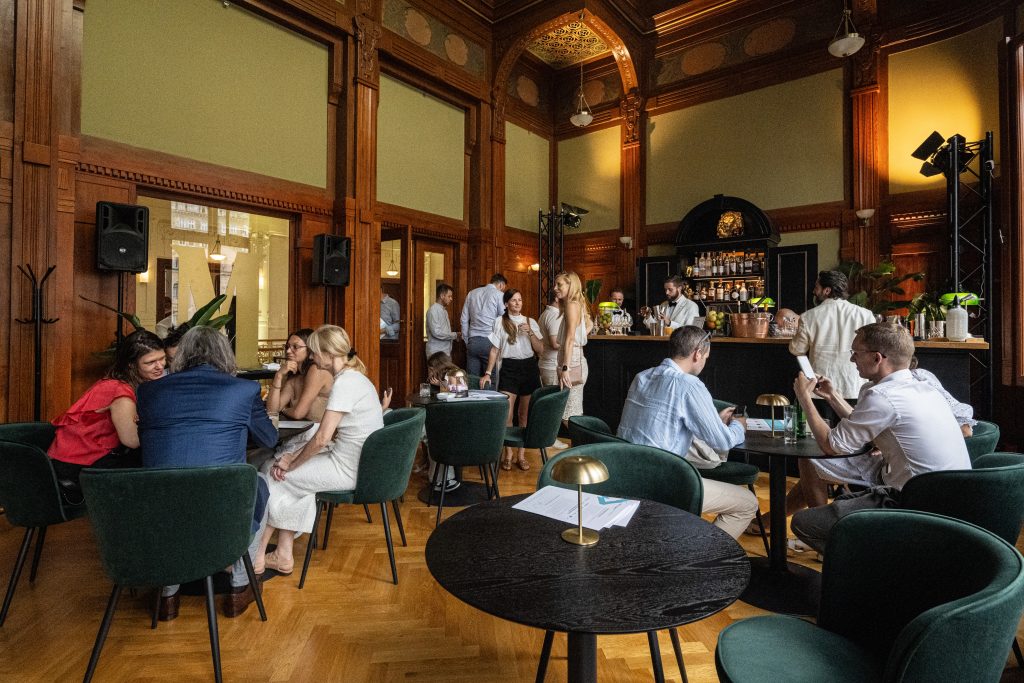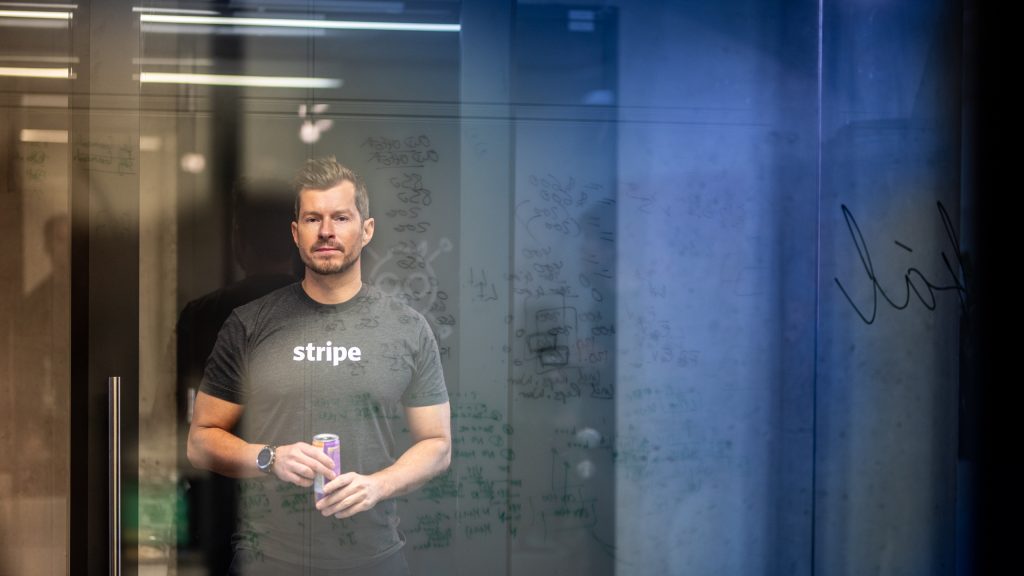All newsFilip Široký: I like the idea that we can make a mark in the world from Prague

At the age of 15, he was already convinced that he’d devote his life to CERN, and though during university his interests took a different direction, he did make an appearance at the European Organization for Nuclear Research – and not only as probably the youngest trainee in history, but later also as the youngest employee. However, one short meeting with Rockaway Blockchain Fund head Viktor Fischer catapulted him from Geneva back to the Czech Republic, and for the past half-year now Filip Široký has been working at the Fund as a Research Associate. “Working for RBF allows me to not only be part of an amazing collective, but also to constantly discuss new technologies and build the largest crypto fund in Europe,” he says.
If we were to illustrate Filip’s life on a timeline, we’d have to mark it with several quite important points. The idea of becoming a physicist at CERN, his studies at the Faculty of Informatics, a work term at CERN as well as at one of the best IoT (Internet of Things) start-ups in Oslo, being included in the Forbes 30 Under 30 list, his first job as a data scientist, once again at CERN, and finally becoming part of the blockchain fund’s team. At the tender age of twenty-six, Filip’s CV is chock-full of experience that even those born ten or twenty years earlier wouldn’t be ashamed of. “Already during my first year of gymnazium I simply knew that I wanted to work as a physicist at CERN. It may have seemed quite unlikely to me, even back then, but I didn’t mind. I wanted to anyway.”
He may not have found comprehension among some of his classmates, but Filip didn’t see this as a problem. “I often wanted to continue a conversation with our teacher, and the others would complain that they wanted to go for lunch already,” he laughs. “But I didn’t care. I simply talked to those who wanted to talk to me.” Soon he experienced an interesting mental leap, when he saw Alex Garland’s Sci-Fi movie thriller, Ex Machina. Artificial intelligence captivated his interest and inspired him – as he says, he realized that in this new field, he could make the greatest contribution to society. “I knew that we’re at the start of something really big.”
Helping CERN
Out of applications in the area of physics, philosophy and “pure” mathematics, mathematical informatics at Masaryk University in Brno finally won out. And already during his first year he “disgraced” PhD students a bit – he and some classmates won the faculty artificial intelligence competition on a topic that connected him perfectly with the nuclear centre in Geneva.
“We were using machine learning methods to find anomalies in large quantities of data and time series – and at CERN they were looking for something similar at the time. That helped me, and right after Erasmus studies in Milan, I went to Switzerland for a work term.”
After completing his bachelor’s degree he then went back to the “same employer”, this time as a full-fledged member of the team. For almost three years he worked on a critical project to optimize and automate the linear accelerator and particle source for all accelerators at CERN.
The goal of such an accelerator is to provide a sufficiently powerful and stable stream of particles. “The problem was that in the device there’s a lot of plasma physics going on that is by its nature very unpredictable, and scientists wanted to control the accelerator in real time using about twenty parameters to maintain a sufficiently high-quality particle stream,” he explains. Filip created an artificial intelligence that used large quantities of historical data to understand how the device worked and of help physicists perform this demanding task.
Blockchain with a human face
Were it not for Forbes’ 30 Under 30 event in September 2021 in Bratislava, Filip would still be at CERN, and in a higher position. But one panel discussion sealed his fate. RBF managing partner Viktor Fischer was debating in one of the panels, and later he and Filip spoke. “At the time I was taking a quite intense interest in the technologies behind cryptocurrencies in my free time. And it occurred to me that it might not be a bad idea to work with
them full-time.” And quite innocently and humbly he adds: “At worst, I’d have returned to CERN.”
But this “bleak scenario” didn’t occur, and he moved from Geneva to Prague’s Dejvice neighbourhood. At RBF he’s responsible for managing investments into infrastructure and blockchain scaling. “I usually concentrate on one main deal, try to understand how it works, and whether there isn’t a better solution. Then I try to create a thesis that I communicate to the team.” Thanks to his deep knowledge of mathematics and computer science, he’s able to understand technically complex aspects of the product, which are the most important thing when it comes to investments into blockchain infrastructure. He is then better able to decide whether the product will still be working ten years from now and how it all fits in with the Fund’s philosophy.
Does such demanding work give time for a human perspective on the team? The answer is 100 % yes, and the fact that Filip “clicked” with the team was the first reason why Filip gave the nod to Viktor’s offer. “Before I started working at RBF I met the team at a summit in Zürich. I found out that they’re an amazing collective and excellent people. This, combined with the vision that we’ll be building the largest crypto fund in Europe and that we can make a mark in the world from Prague, was sufficient proof for me that joining it would be the best choice. And I have to say that I’ve been meeting lots of inspiring people throughout the entire Rockaway group.



